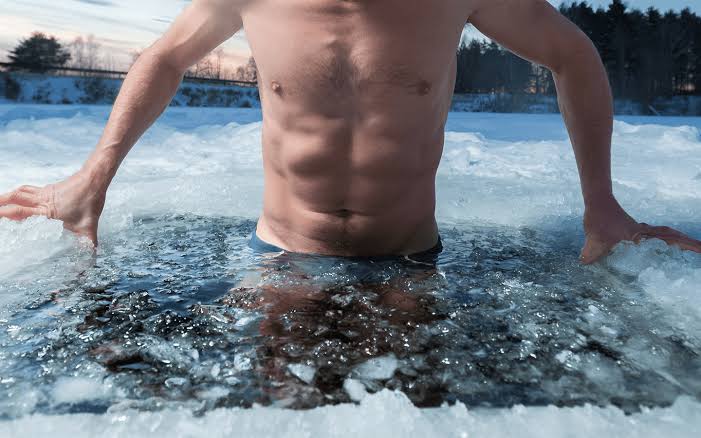The moon is still up as we walk down to the beach. There’s frost on the sand and fresh snow on the ranges. The air temperature is 1C.
Near the water’s edge at Nelson’s Tāhunanui beach, Barney Aupa’au recites a whakataukī in his native Samoan, white puffs of breath following his words. “La malu le vai i lou finagalo,” which translates to “may your mind be cool like water”.
The swimmers laugh, and then take off multiple layers until they are just in their togs; not a wetsuit to be seen. The water will be more than cool, an icy 10C, (compared to a heated swimming pool temperature of around 26C).
It’s the question most people ask when they hear about the group, and others like it. Overseas there has been a “wild swimming” resurgence, boosted during the pandemic, as growing numbers take a dip in bracing, or positively bone-chilling lakes, rivers or the sea in return for a physical and mental boost. For Barney, it started as a personal quest on New Year’s Day this year to help improve his mental health, specifically his anxiety. He took a dip in a freezing river when he was on holiday in Golden Bay, and felt more alive physically and mentally. When he came back to Nelson he continued the practice in the early mornings at Tāhunanui. Friends joined him. Now there is a solid core of around 12 people most days and since he made the Saturday 7am swim a public group on Instagram, 30 to 40 people have been turning up, even in the depths of winter.
“When I first came down to the beach I kept saying me versus me,” he says. “Leading up to that point I guess I would compare myself to other people, but I realised I’m not competing against anyone else; I’m only competing against myself.” He has turned the saying into a mnemonic: Mental exhaustion vs mental elevation. “I get mentally exhausted with life and everything that’s happening in the world. Every time I come down here I get mentally elevated; I’m so, so happy.” To get to the happy part requires overcoming a challenge in body and mind. When the Saturday group gathers in the carpark under the Abel Tasman statue, Barney tells them this will be their hard mahi for the day; getting out of a warm bed into the freezing water, getting comfortable being uncomfortable.
Anything else thrown at them will seem easier.
On those first few steps into the sea, my mind is not cool like water. It’s mildly panicked, and asking some serious questions such as: “Are you crazy?” .
But there is little time to dwell. One of the group starts the countdown: “Toru…rua…tahi!”. Then we dive.
I pop straight back up, gasping like a landed fish. “Try to breathe through it,” someone says. I slowly immerse myself again.
The joints in my elbows and shoulders ache with the cold. But after a minute or so, my breathing starts to calm down, the sensation of a solid wall of ice around my stomach and chest eases, maybe because I have lost feeling.
Gradually, I can take in my surroundings; the thin blanket of mist on the water, the sun on the new snow. Barney and my fellow swimmers are enthusiastic and encouraging, with advice to cross my arms over my core. Still, five minutes feels like a long time (some stay in for 20). Wading out, my feet feel like lumps of clay, even after standing in a bin of warm water the group has on the beach. Trying to put socks on with no feeling in your fingers is so ungraceful you can’t help but laugh. There’s more laughter when the group reconvenes across the road at the Raglan Roast café, with the heaters going, hot coffee and savouries. Slowly the magic starts to happen. The theory is that the stress of cold water ignites a big nervous system reaction, creating a natural high. It’s hard to describe the sense of well-being that slowly spreads through my body and lasts most of the day; it’s like walking around with a small generator inside. Advocates of cold water immersion say it has multiple benefits, including reduced inflammation, more energy, better sleep, better circulation and an alertness that feeds into a clearer, calmer mental state. Scientific research is not yet extensive enough to back the anecdotal claims. There have been studies showing cold water can aid muscle recovery after exercise, and some emerging studies tracking outdoor swimmers who have reported improved mental health.
There have also been warnings from experts that people should get a medical assessment before subjecting their bodies to cold water shock, and should ease into, rather than dive into, the practice.
Talking to Me vs Me members there is no doubt about the boost they get.
Julie Woodley said her first plunge “took my breath away, and I ran out”.
But the next weekend she stayed in for five minutes, then progressed to 12.
“I can’t describe the feeling, it’s unbelievable,” she says. “It makes you feel alive.
“It builds your resilience and puts you in a positive frame of mind.”


